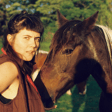
Meditation, Interbeing & Emotional Upskilling with Suzie Brown
Friends! Here’s a D&M (Dharma & Meditation) conversation I recorded with mindfulness meditation teacher and founder of Australian Parents for Climate Action Suzie Brown while visiting Narara Eco Village last week.
If you’ve ever felt anxious, unsure how to process difficult/obstinate emotions, or sad for no reason, this episode will provide ample tools for stilling the mind and relating to yourself – and the world – with kindness.
On that note, I start the ep with an emo travel diary entry, and how a snaggy creek helped me see my internal struggles in a whole new light.
IN THIS CONVO
🕊️ When you feel sad for no reason despite the trappings of success
🕊️ Can we *really* choose happiness?
🕊️ The pleasant/unpleasant emotional pinball machine
🕊️ The magic of noticing
🕊️ Name it to tame it
🕊️ Kindfulness
🕊️ How to establish a non-militant meditation habit
🕊️ Rejigging negativity bias
🕊️ The R.A.I.N practice for difficult emotions
🕊️ Dharma + ecodharma explained
🕊️ How interbeing can solve the polycrisis
🕊️ Long Shower Syndrome
🕊️ Resource guilt
🕊️ Parents for Climate!
🧙♀️ LINKY POOS
Weekly online (by donation) Sky Sangha Meditation gathering
Australian Parents for Climate Action!
Give Suzie a hoy at hello@suziebrown.au



















